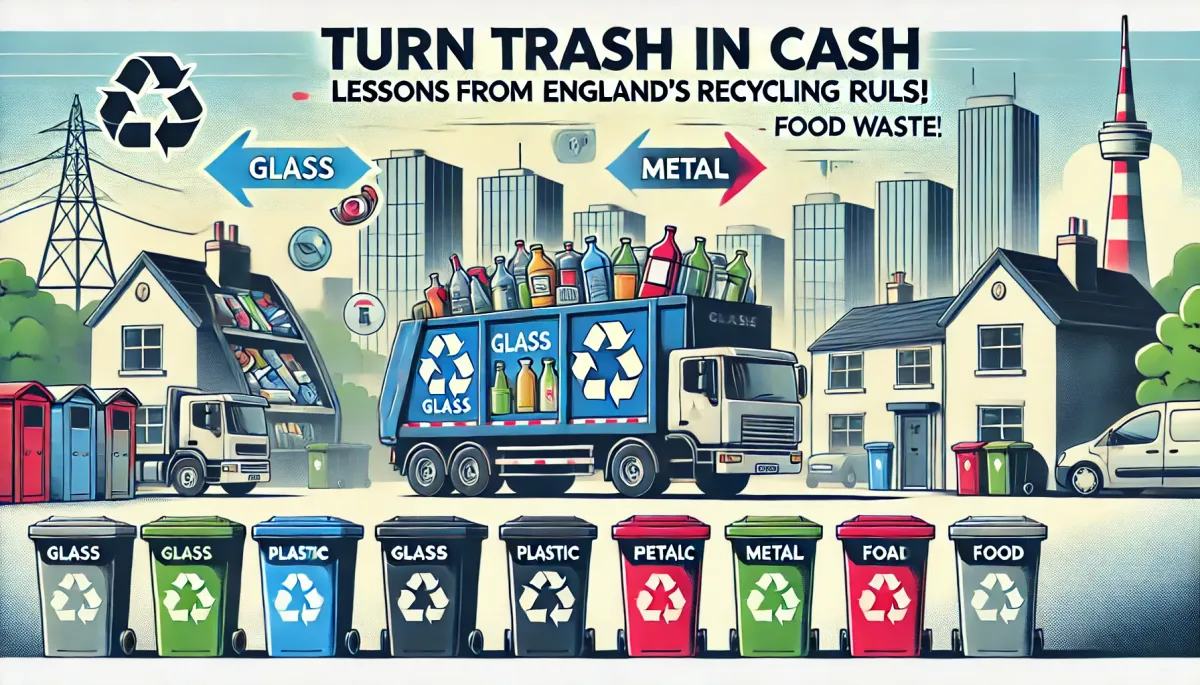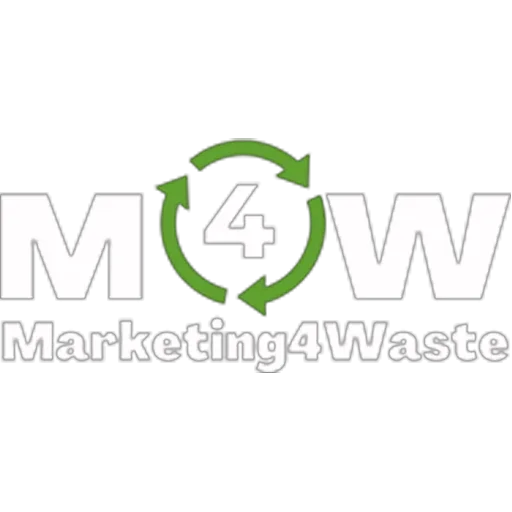Increase the Revenues of Your Waste Company With the Tips Shared in Our Blog Articles

What U.S. Waste Management Company Owners Should Learn from England’s Simpler Recycling Regulations
In the ever-evolving landscape of waste management, we find ourselves at a crossroads. Traditional systems are becoming outdated, operational inefficiencies are squeezing margins, and customer dissatisfaction is on the rise. But as with every challenge, an opportunity lies buried beneath the surface, waiting to be uncovered. And today, that opportunity comes in the form of the Simpler Recycling Regulations recently introduced in England.
While at first glance these regulations might seem like just another set of rules, they are, in reality, a powerful blueprint—one that waste management companies, even here in the United States, could adapt to revolutionize their businesses, drive profits, and win customer loyalty. Let me explain why.
[Download the eBook “Thriving With Waste”]
The Power of Simplification: Turning Complexity into Opportunity
For decades, recycling systems around the world have been plagued by a fundamental problem: inconsistency. In the United States, what’s recyclable in one city is destined for the landfill in another. This patchwork of rules creates confusion, contamination, and frustration—not just for residents but also for the businesses tasked with managing the mess.
England’s Simpler Recycling Regulations have tackled this head-on by introducing a standardized waste collection system. Regardless of where you live in England, the rules for what goes in the bin are the same. Imagine the efficiency gains if we could bring that level of clarity to the U.S. market. For waste management companies, this would mean:
Streamlined Operations: Simplified sorting processes and lower contamination rates translate directly into reduced processing costs.
Improved Customer Retention: Clear and consistent guidelines keep customers happy and loyal. No more frustrated homeowners or businesses calling to complain about rejected recycling loads.
Market Differentiation: By adopting a system modeled on England’s regulations, you could position your company as a trailblazer—one that makes recycling easier and more effective for everyone involved.
In short, simplicity sells—and in waste management, it pays dividends.
[Download the eBook “Thriving With Waste”]
Weekly Food Waste Collection: The Goldmine Hiding in the Garbage
Here’s another gem from England’s playbook: mandatory weekly food waste collection. Think about it. Food waste is one of the heaviest components of residential and commercial waste streams. It’s messy, it’s odorous, and it’s costly to dispose of in landfills. Yet most U.S. companies treat it as just another part of the pile.
England’s regulations take a different approach. By requiring food waste to be collected separately, they’ve opened the door to a whole new revenue stream. Here’s why you should care:
Lower Disposal Costs: Diverting food waste from landfills reduces tipping fees—an immediate cost savings for your business.
Value-Added Services: Offer food waste collection to your customers, and you’ve got a premium service that justifies higher rates.
New Revenue Opportunities: Process food waste into compost or partner with facilities that convert it into biogas. Either way, you’re turning trash into cash.
For waste management companies, embracing food waste collection isn’t just a smart business move; it’s a competitive advantage. Those who act now will capture the market while others are still playing catch-up.
[Download the eBook “Thriving With Waste”]
Source Separation: A Return to Quality
Let’s talk about contamination—the silent killer of recycling programs. In the U.S., single-stream recycling has been the dominant model for years. Sure, it’s convenient for customers, but convenience comes at a cost. Contaminated loads lower the value of recyclables, drive up processing costs, and, worst of all, erode trust in the system.
England’s regulations flip the script by requiring source separation of materials. Households and businesses must sort their waste into distinct streams: paper and cardboard, glass, plastics, metals, and food waste. Here’s what this means for you:
Higher Material Value: Clean, uncontaminated recyclables fetch a premium price in the market. By adopting source separation, you’re not just processing waste—you’re creating a high-value product.
Operational Efficiency: With less contamination, your processing facilities can operate more smoothly and at a lower cost.
Customer Education: Source separation encourages customers to engage with the process, deepening their relationship with your brand and increasing their lifetime value.
Switching to a source-separated model may require an upfront investment, but the long-term payoffs—in both revenue and reputation—are undeniable.
[Download the eBook “Thriving With Waste”]
Clear Deadlines, Clear Expectations
One of the most striking aspects of the Simpler Recycling Regulations is their clarity. The rollout includes specific deadlines for compliance:
By 2025, businesses must separate core recyclables (glass, metal, plastic, paper, cardboard, and food waste).
By 2026, all households must have weekly food waste collection.
By 2027, kerbside plastic film collections begin for businesses and households alike.
This phased approach ensures that everyone—from local councils to waste management companies—knows exactly what’s expected and by when. Imagine the benefits of implementing a similar system in your own operations:
Operational Planning: Clear deadlines allow you to align investments, staffing, and infrastructure upgrades with predictable timelines.
Customer Communication: With a well-defined roadmap, you can educate your customers in advance, minimizing confusion and complaints.
Regulatory Compliance: Even if you’re not bound by England’s regulations, adopting a similar framework positions your business as forward-thinking and proactive.
In an industry often characterized by chaos, clarity is a rare and valuable commodity.
[Download the eBook “Thriving With Waste”]
Government Support: Leveraging Public-Private Partnerships
England’s approach includes robust support for local councils and businesses to ease the transition to the new system. This includes funding, guidance, and public education initiatives. While the U.S. doesn’t have a unified federal program for waste management, there’s a lesson here: collaboration pays off.
By working closely with local governments, schools, and community organizations, you can:
Expand Your Reach: Tap into public education campaigns to raise awareness about your services.
Secure Funding: Many municipalities offer grants or subsidies for waste diversion programs. Don’t leave money on the table.
Build Goodwill: Partnering with public institutions enhances your reputation and solidifies your position as an industry leader.
The more you can position your company as a partner—not just a service provider—the more opportunities you’ll unlock.
[Download the eBook “Thriving With Waste”]
The Bottom Line: Adapt or Get Left Behind
Waste management is no longer just about hauling trash; it’s about creating systems that are efficient, profitable, and aligned with the needs of today’s customers. England’s Simpler Recycling Regulations offer a proven framework for achieving exactly that. By adopting similar principles, waste management companies in the U.S. can:
Reduce Costs by streamlining operations and lowering contamination rates.
Increase Revenue through premium services like food waste collection and higher-quality recyclables.
Win Customers by offering clear, consistent, and user-friendly recycling solutions.
Future-Proof Your Business with systems designed for long-term success.
But here’s the catch: the time to act is now. The companies that move first will reap the rewards, while those that hesitate risk being left behind in a competitive and rapidly changing market.
[Download the eBook “Thriving With Waste”]
Ready to Transform Your Business?
As the Waste Management Alchemist, I specialize in helping companies like yours uncover the hidden opportunities in today’s waste streams. If you’re ready to take your business to the next level—to implement systems that drive profits and customer satisfaction—I invite you to explore how England’s blueprint can work for you.
Let’s start the conversation. Together, we can turn waste into wealth.
To Your Success,
Sam Barrili
The Waste Management Alchemist


© 2025 Marketing4waste - All Rights Reserved,
Marketing4Waste is a brand of MiM MarketingInterimManagers LLC
+1 801 804 5730

